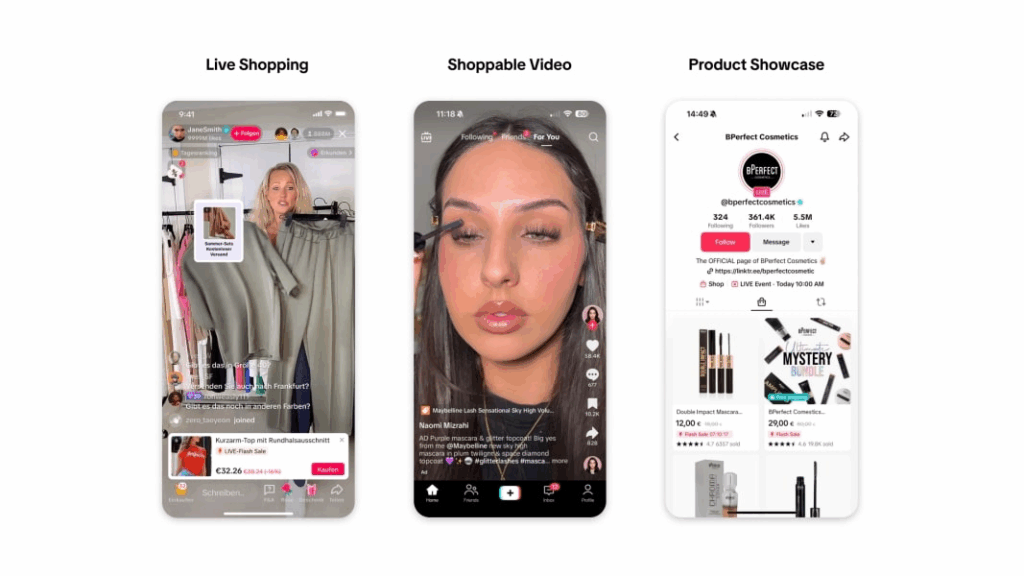Trend alert: Why Germans rarely create accounts, but still come back to your e-commerce?
Written by
Kinga EdwardsPublished on
Why do Germans love the shortcut, and what keeps them loyal even without an account? Find out inside!

Did you notice that Germans rarely create accounts? After all, many of them think no account, no problem.
That’s often the German approach to online shopping. Many shoppers skip the registration page, hit guest checkout, and vanish without a trace. At least, that’s what it looks like.
And yet, they return. Again and again. They put new items in the cart, grab fresh deals, and trust the same store without ever clicking “create account.”
Strange? Maybe. Clever? Very.
Why do Germans love the shortcut, and what keeps them loyal even without an account? Think of it as “Ordnung muss sein” meeting digital shopping habits – strict with data, but flexible with choices. The real twist: guest checkout is not the end of the relationship. It’s the beginning.
Why Germans avoid creating accounts
Germans love order, but not when it comes to endless forms. Nearly 25% abandon their carts the moment an account is required. That’s not a small protest but a clear signal that shows us that Germans rarely create accounts.

Privacy is the first wall. With 78.4% actively guarding their personal data, shoppers think twice before handing over names, birthdays, or addresses to yet another shop. Add to this the fear of spam. Nobody wants their inbox to look like a Christmas market shouting from every stall.
Then comes the paperwork. Long registrations feel like German bureaucracy online: too many boxes, too many clicks. And when over 64% don’t even read privacy policies because 52.4% find them too complex, forcing them through a dense sign-up form is a recipe for lost sales.

And here’s the kicker: perks hidden behind accounts rarely impress. 77% say price is the main factor when choosing a shop. Discounts, clear deals, and fair terms speak louder than “exclusive member benefits.” For many, a fast guest checkout beats any loyalty program locked behind a password.
Why Germans still return to the same store
Shoppers come back for other reasons, and often. In fact, one in three Germans shops online at least once a week, turning “guest” into “regular” faster than you might expect.

First, the magic word: Rabatt. 48% say discount codes or time-limited offers are enough to sway their choice. A deal today beats a loyalty card tomorrow. That’s German pragmatism in action.
Second, the product. If a store has something rare, fresh, or hard to copy, customers return. Variety works like a magnet if it’s in your store, too; Germans rarely create accounts.
Third, memory. A positive checkout once makes the next click easier. Fast delivery, no drama – it sticks. Add 56% of shoppers using reviews as a guide, and you see why a smooth past experience outweighs account perks.
And last, trust. Germans like clear rules. Transparency in service and privacy builds confidence. With that, even a guest checkout feels like home.
Guest checkout as the solution
Think of guest checkout as the “Schnellstraße” of e-commerce: no toll booths, no paperwork, just a straight drive to the finish line. Customers skip the account, fill in the basics, pay, and move on.
Why is it spreading so fast? Privacy plays a part, but so does speed. And with more than half of German shoppers buying on their smartphone, the shorter the process, the better. Nobody wants to type passwords and repeat confirmations on a tiny screen.
There’s also law behind the trend. The German Data Protection Conference and courts have stressed that guest checkout is not just nice to have. It matches GDPR’s principle of data minimization. Forcing an account can actually land a store in trouble.
But here comes the balance act. Guest checkout gives customers the convenience and privacy they want. At the same time, stores don’t lose the bond. They can still build trust through receipts or gentle follow-ups. The guest gets freedom, the shop gets another chance.
Building loyalty without forcing accounts
Do you really need a password to keep a customer close? Not in Germany. Loyalty today can live outside the login page. People don’t come back because of a profile. They come back because the shop feels easy and worth remembering.
Start with social commerce. Shoppers already scroll, like, and buy while checking memes or chatting with friends. Three out of four Germans have purchased through social media, and 87% say they would do it again. Yet only one in four retailers uses these channels actively. That’s like opening a store on a busy shopping street but leaving the lights off. Being visible where people spend their free time builds a bond – no login form needed.
Then there’s the silent helper: data. Cookies and browsing history can turn a faceless guest into someone who feels known. Imagine a shopper browsing hiking boots, then later seeing the same pair with a seasonal discount. That’s not creepy if done right, it’s smart. And under GDPR rules, it’s possible as long as consent is clear. Germans respect Ordnung, even in data handling.
Loyalty perks also don’t need to hide behind “members only.” A guest can still grab a weekend discount, or unlock a code from a pop-up. Nearly half of German shoppers admit they’re swayed by discount codes or time-limited offers. The psychology is simple: a deal feels more real than a password.
And don’t forget the humble email. A receipt doesn’t have to be boring black-on-white. Slip in a small thank-you, a sneak peek of new stock, or a voucher for the next order. Suddenly the “end of checkout” becomes the start of the next visit. A clever subject line can do more for retention than any account login reminder.
In short, loyalty is about making people want to walk back in. Germans value freedom, privacy, and fair play. Give them those, and even guest shoppers will keep your store bookmarked in their minds.
Trend alert: what’s next in German e-commerce
Guest checkout is turning into Pflicht. Shoppers expect it, courts back it, and brands risk penalties if they ignore it. In a country where “Datenschutz” is a household word, the guest button is survival.
At the same time, social commerce is rising fast. Buying through Instagram or TikTok feels login-free and almost playful.

These “soft” loyalty links, through social feeds, short emails, or quick personalization, are now stronger than old-school accounts.
The real game? Balancing privacy and personalization. Germans want both: clear respect for their data and shopping that feels tailored. Too much data grabbing, and trust breaks. Too little, and the store feels cold. Brands that master this tightrope walk will keep customers coming back, account or no account.
Conclusion on why Germans rarely create accounts
Germans love trust and convenience more than shiny account perks. They don’t want another password to remember, but they do want a shop that feels fair, fast, and reliable.
Guest checkout gives them that. Add a clear receipt, a timely discount, or a friendly ping on social media, and you keep the link alive. Think of it like German trains at their best: arrive on time, no fuss, and people will ride again.
Stores that master this rhythm win twice. They respect privacy and still keep customers close. And in the end, that’s what turns a one-time guest into a steady buyer.
***


